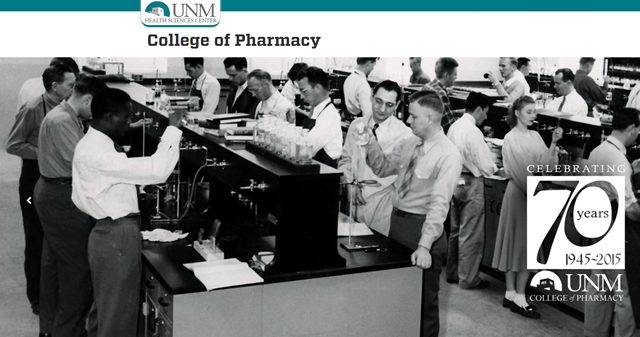
Pharmaceutical Sciences ETDs
Publication Date
2-14-2014
Abstract
The current literature on COPD treatment, in particular the impact of treatment on exacerbations, demonstrates that confounding by indication has not been adequately addressed in observational studies. The goal of this research was to develop better methods for describing the effectiveness of COPD treatment in the general population. The central hypothesis of this research is that marginal structural model (MSM) methods are an effective way of addressing the bias introduced by confounding by indication in this clinical situation. To test this hypothesis, we compared the effectiveness of monotherapy with the long-acting muscarinic antagonist (LAMA) tiotropium or dual therapy with an inhaled corticosteroid/long-acting beta-agonist (ICS/LABA) combination inhaler, as compared with use of both concurrently (triple therapy). The primary outcome measure was severe exacerbation risk over a two-year period. Three different analysis design methods were evaluated: an intent-to-treat (ITT) approach, an as protocol (As Protocol) approach that considered discontinuation of initial treatment during the follow-up period, and an MSM analysis that incorporated time-varying covariates related to prior period moderate exacerbations, use of short-acting beta-agonist (SABA) rescue medication, and discontinuation of the treatment during the follow-up period. Claims data from two managed care health plans in New Mexico for the time period July 1, 2004 through September 31, 2013 was used to identify 5,475 study subject age 40 or older with a diagnosis of COPD who were "new" users (no use in the prior six months) of ICS/LABA, LAMA or triple therapy. In the two-year period after initial receipt of therapy, 855 study subjects had a severe exacerbation (15.6% of 5,475). Among the 855 subjects, 411 had a severe exacerbation while still using their index therapy (events for the As Protocol analysis), and 476 while using ICS/LABA and/or LAMA medication that may or may not have been their index therapy. Discontinuation of therapy was very prevalent. By six months after index, 53.5% of the study sample had no evidence of use of ICS/LABA or LAMA medication. Factors related to discontinuation were considered in the MSM analysis. Important differences among these three approaches were revealed by these analyses. In the MSM analysis, triple therapy was not more effective than use of either ICS/LABA or LAMA in reducing the risk of severe exacerbation (HR 1.11, 95% CI 0.68 to 1.81). The ITT analysis using Cox proportional hazard models suggested that triple therapy was associated with increased risk of severe exacerbation over a 24 month period after initiation of therapy (HR 1.24, 95% confidence interval (CI) 1.00 to 1.53), however over 50% of the study sample discontinued use of ICS/LABA or LAMA by six months post-index, suggesting bias in the ITT risk estimate. No increased risk was seen in the As Protocol analysis (HR 1.00, 95% CI 0.73 to 1.36), suggesting that the increased risk observed in the ITT analysis is largely attributable to events occurring after study subjects have discontinued use of ICS/LABA or LAMA. Important relationships that were discerned in the MSM analyses were that use of SABA medication in a prior period were strongly associated with both use of triple therapy at the start of the next period, and with continuation of therapy and that moderate exacerbations in a prior period were strongly associated with use of triple therapy at the start of the next period. The MSM approach offered some insights into the relationships between treatment and outcomes in this observational database that would have been difficult to identify using either the traditional ITT approach or the As Protocol approach. MSM is a useful and informative complementary analysis to include in studies of treatment effectiveness.
Fourth Committee Member
Mapel, Douglas
First Committee Member (Chair)
Raisch, Dennis
Degree Name
Pharmaceutical Sciences
Second Committee Member
Georgopoulos, Larry
Level of Degree
Doctoral
Third Committee Member
van der Goes, David
Department Name
College of Pharmacy
Language
English
Document Type
Dissertation
Keywords
effectiveness, COPD, marginal structural model, confounding, triple therapy
Recommended Citation
Roberts, Melissa. "Comparative effectiveness of triple therapy compared to combination or mono long-acting pharmacotherapy for COPD." (2014). https://digitalrepository.unm.edu/phrm_etds/4
